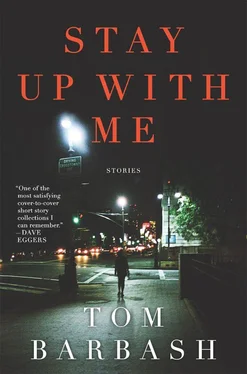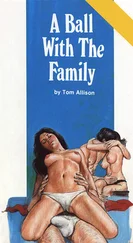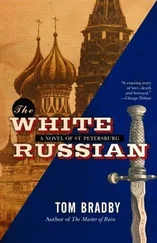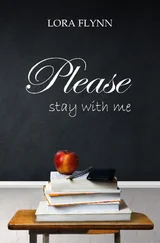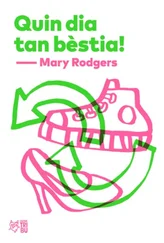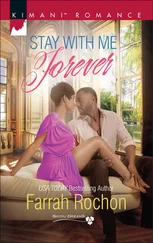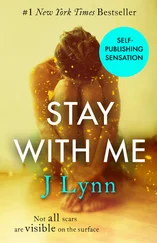I am covered in snow now, some of which has melted through my coat to my chest, and my face stings from the cold of the spray and the wind.
“Hey, wait for us,” Russell yells to my mom, and he starts running for the Jeep, his legs churning like the athlete at the end of the race, and I’m floating now on a wave of dizziness.
I am running light-headed, first slow, but then hard, and as fast as I can. It’s the way I used to feel in gym after a long basketball game, strained, but alive, very alive. I can’t hear the wind anymore and I can’t see the cars or houses, just the white road in front of me, and I can feel the warm flow of blood on my forehead. I can faintly make out the Jeep’s honk and my mom yelling behind me, but I’m running and I’m on my own and it’s all I can do to keep from falling down.
H enry is in the part of the dream where his father carries him piggyback through the shoulder-high waves. His father’s T-shirt is soaked through, and the salt water is making the cut on Henry’s elbow sting, when a woman’s voice calls out, “Henry… Henry .”
Before his eyes open he knows who it is. He can tell by the smell of her shampoo it’s Alice. He’d been napping in the café around the corner from his apartment — the one open until midnight. “He just left,” Alice says, sitting down at Henry’s table, which is by the corner window.
She does this fairly frequently, finds Henry, now a boy-faced thirty-one, somewhere in the neighborhood when she wants his advice. Once — when she needed to choose between two job offers, she searched the grocery store, three coffee shops, and two bars before discovering him seated with his eyes closed on the couch at the Laundromat. Henry has been escaping into dreams a lot lately, in movie theaters or on buses or subways, but mainly in cafés or coffee shops where he spends the bulk of his afternoons and evenings reading or working on one of his scripts.
“He thanked me,” she says with a pained smile. “Services rendered, I guess.”
He stares at her blankly, then glances at his watch.
“I’m sorry to bug you. But I really need you, Henry.”
She gives him the little-girl pout, the one that often convinces him to give her rides, or buy her dinner.
“All right, then. When did he come over?”
“Just after nine.”
Henry does the math. It is eleven now. “Now that’s ‘efficiency.’ ”
“It’s not like that. He works in the emergency room and he has this ridiculous schedule. Anyway, I think I was insensitive to him.”
“How so?”
“His dog died this morning… I guess that’s a pretty big deal.”
“Yeah, I’d say so.”
“I told him I was sorry, really sorry, many times over. I just… I don’t know. I mean how many times can you say, ‘My God, that’s awful. That’s so sad’ ? I had a pretty traumatic run-in at work and I just kept it to myself.”
“Dogs are family members,” Henry says. He gazes down at his screenplay, which is about a spy mission in Tunisia during World War II. He considers letting Alice read some of it, and then remembers how badly that went last time.
“He said it had a heart attack. Since when did dogs start having heart attacks? I thought of a dog dressed like one of those overworked executives — eating too many bacon cheeseburgers and keeling over.”
Henry looks at the other tables to see if anyone else is hearing this.
“I’m going back to work here,” he says.
“Not just yet, Henry.”
“I’ve got a deadline.”
“But you were sleeping.”
“Napping.”
She bites her lower lip and sighs.
“Do you want to maybe go grab a drink?” she says.
He considers the offer. Henry is in the parched badlands of a dry spell, and the thought of a couple of drinks with Alice followed by a trip to his apartment is like a sugar rush, apt to raise his spirits for an hour or so before dropping him into a prolonged crash.
“Maybe not.”
“All right,” she says. “Can I just sit here with you and read for a while. Remember when we used to do that?”
“Do you have something to read?”
“No.”
Henry hands her a book from his bag, then goes back to working on his screenplay.
Alice begins reading the book and twirling a strand of her straight brown hair around a pencil. After a while she tilts her head thoughtfully and asks him, “How’s your dad, Henry?”
“He’s good.”
“I think about him all the time.”
Henry raises his eyebrows dubiously.
“Let’s go visit him this weekend. Like we did that time. Remember? When we went to the movies afterward.”
“Moulin Rouge.”
They’d arrived ten minutes late and had to sit in the front row. With all the jump cuts and pulsating lights, Henry felt as if he might go blind.
“I thought it would cheer you up.”
“You thought it would cheer you up.”
“You were the one who was being strange.”
“Water under the bridge,” he says.
But Henry remembers it vividly. He was planning to ask Alice to move in with him that night after they made a lobby drop-off of some books at his father’s. His father insisted they come up for a quick drink so he could finally meet Henry’s girl, and his old-fashioned use of the word touched Henry enough to consent. He had assured Henry that his apartment was in “cocktail party shape,” and possibly in his eyes it was. He’d set out a full bar — dusty bottles of Tanqueray, Stolichnaya, and Maker’s Mark — a few wedges of odd-tasting cheese, some hard salami, and what might have been pâté, and he’d clearly vacuumed, and straightened the furniture. But along the most cursory of investigations, Henry saw trouble: moth-eaten alligator sweaters thrown over piles of paper in his office, mold growing on the refrigerator shelves and in the corners of the bathroom.
Until that night it was possible for Henry to live in a state of suspended judgment about his father’s circumstances, but now through Alice’s eyes he saw every coffee stain in the carpet or stray clump of rice on the kitchen stove as proof of his father’s alarming decline. His father had downed a martini or two before they arrived, giving him the jittery, gin-emboldened air of a nightclub emcee trying to earn the love of an unresponsive audience. He told a few reliable old stories, told them flawlessly and then, like a man who takes the wrong road on the way home and finds himself on a street very much like his but which doesn’t contain his house, lost his bearings. When he recovered, he warmed to Alice and acted around her like a teenager with a crush. She flirted back. It irritated Henry, though he knew it was simply her way of making herself comfortable in a strange situation. When Alice leaned down to retrieve a fallen ice cube, Henry caught his father admiring her ass.
When his father retreated to the kitchen for a forgotten hors d’oeuvre, Henry apologized for the mess in the apartment.
“It’s fine. He’s been the perfect host,” Alice said, without knowing how true that had once been. In the old life, his parents’ parties were legend: posh caterers, pianists and torch-song singers, and guests in black tie — all before the businesses tanked, and before his father fell asleep smoking a cigarette, burning two rooms of their brownstone — and before Henry’s mother left, sending Henry plummeting into that blind alley of resentment where he both hated his father for making his mother leave and felt responsible for him in his fragile loneliness.
At the door, Henry’s father pressed Alice’s hand in his and told her, eyes moist, how much he loved his son and that Henry was all he had left in the world.
Читать дальше
